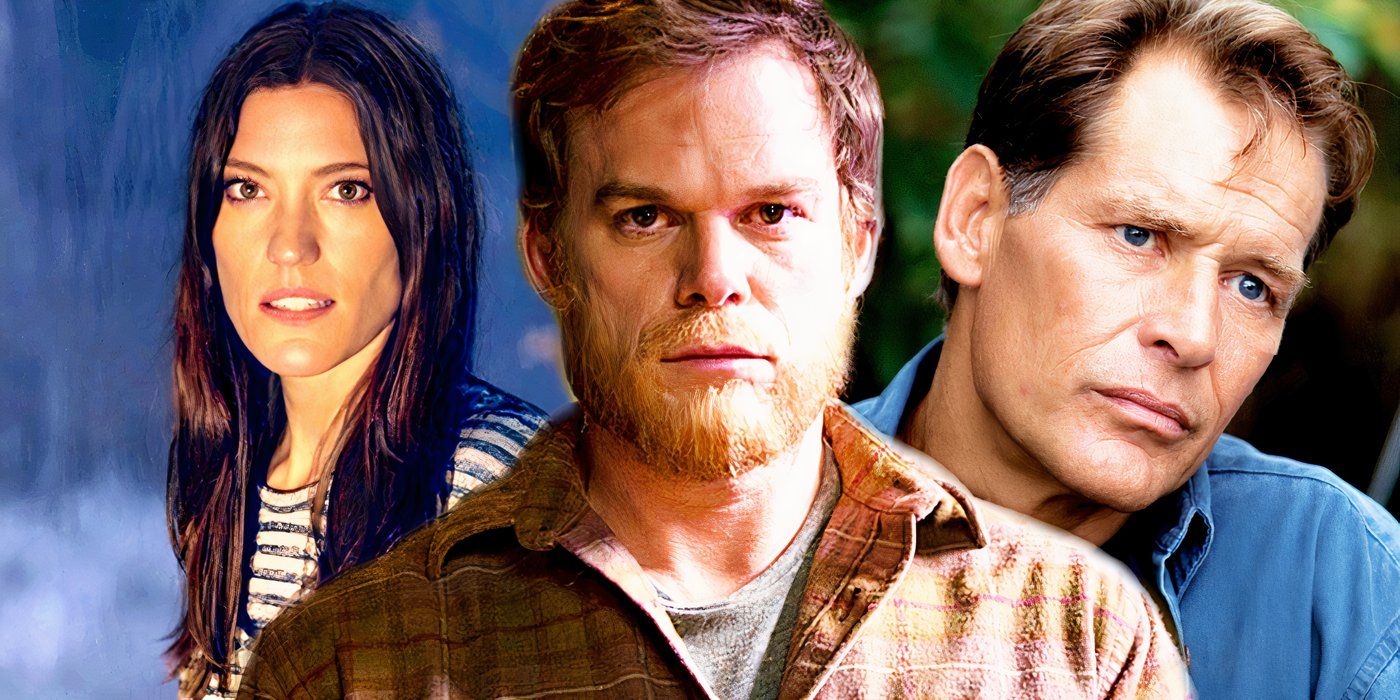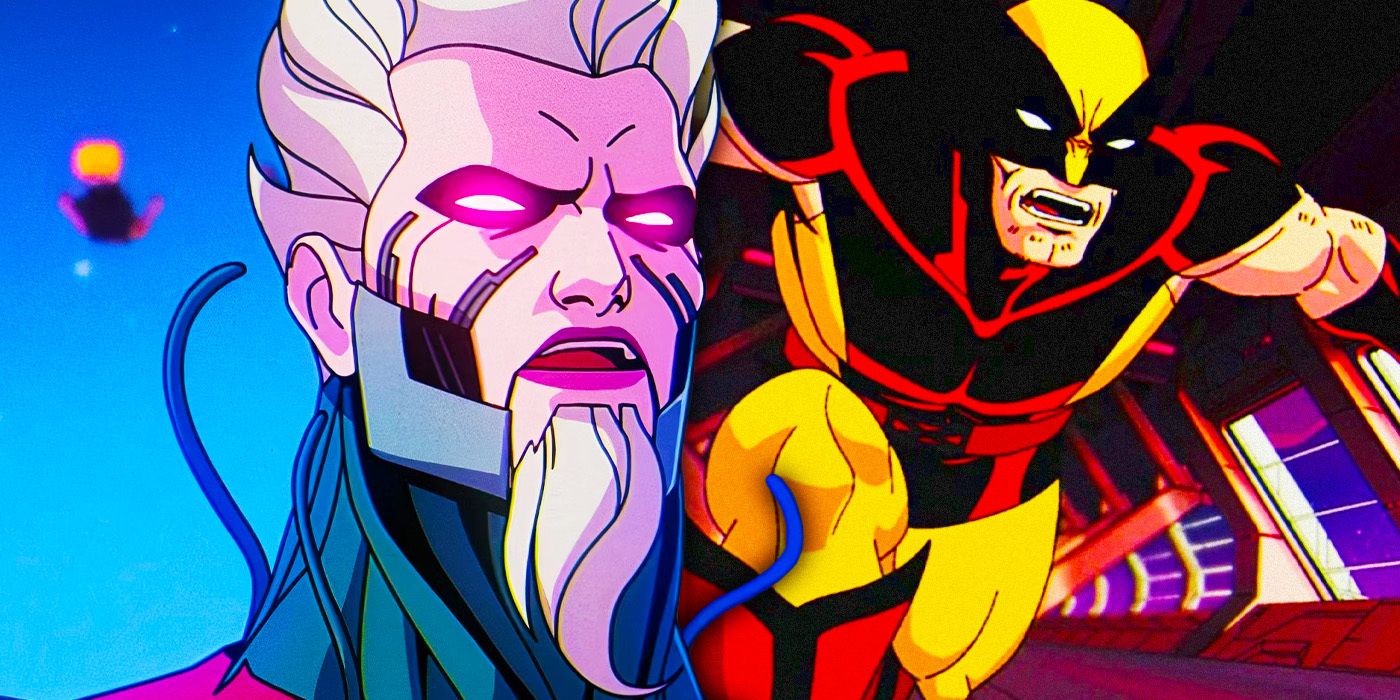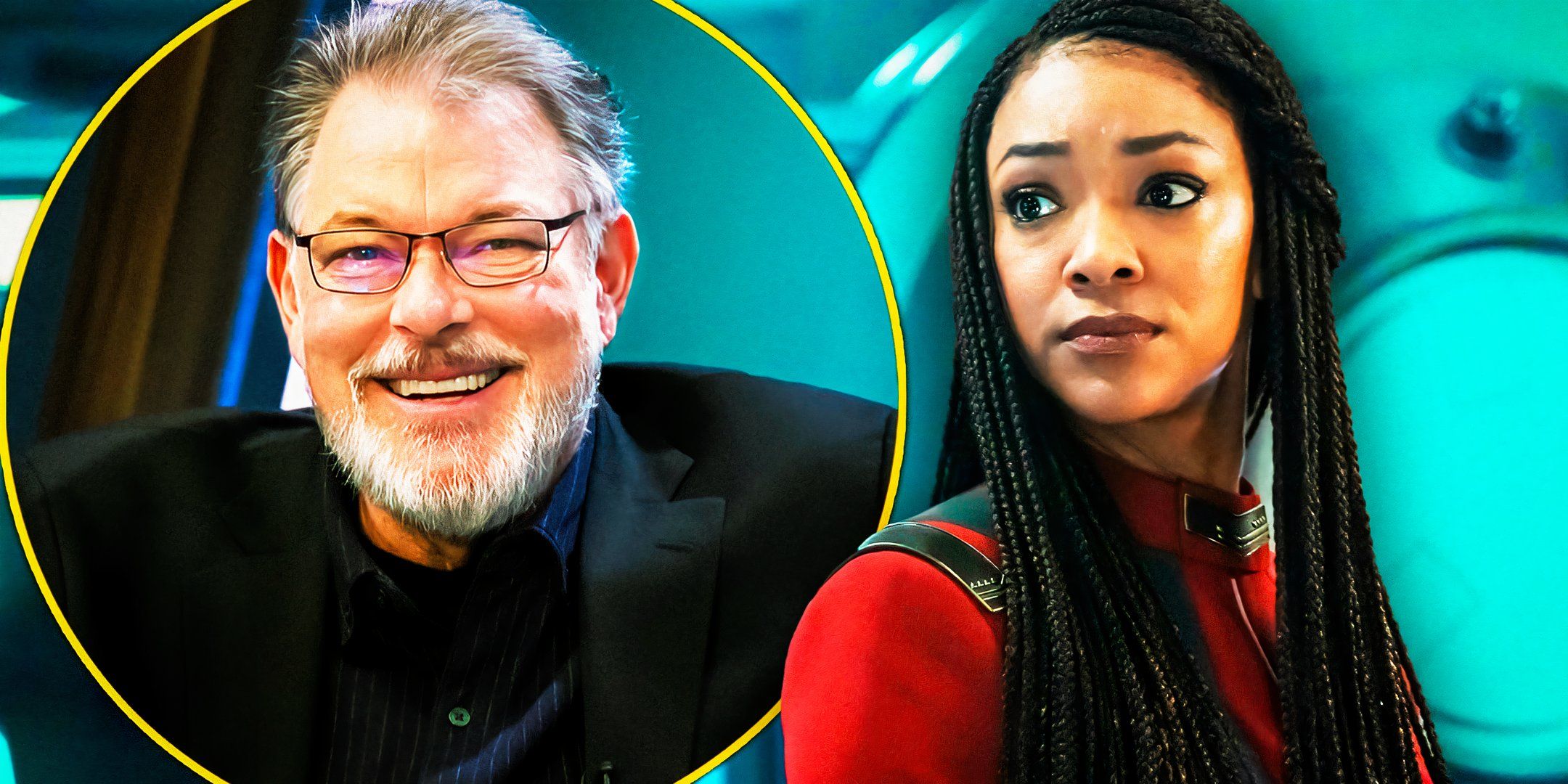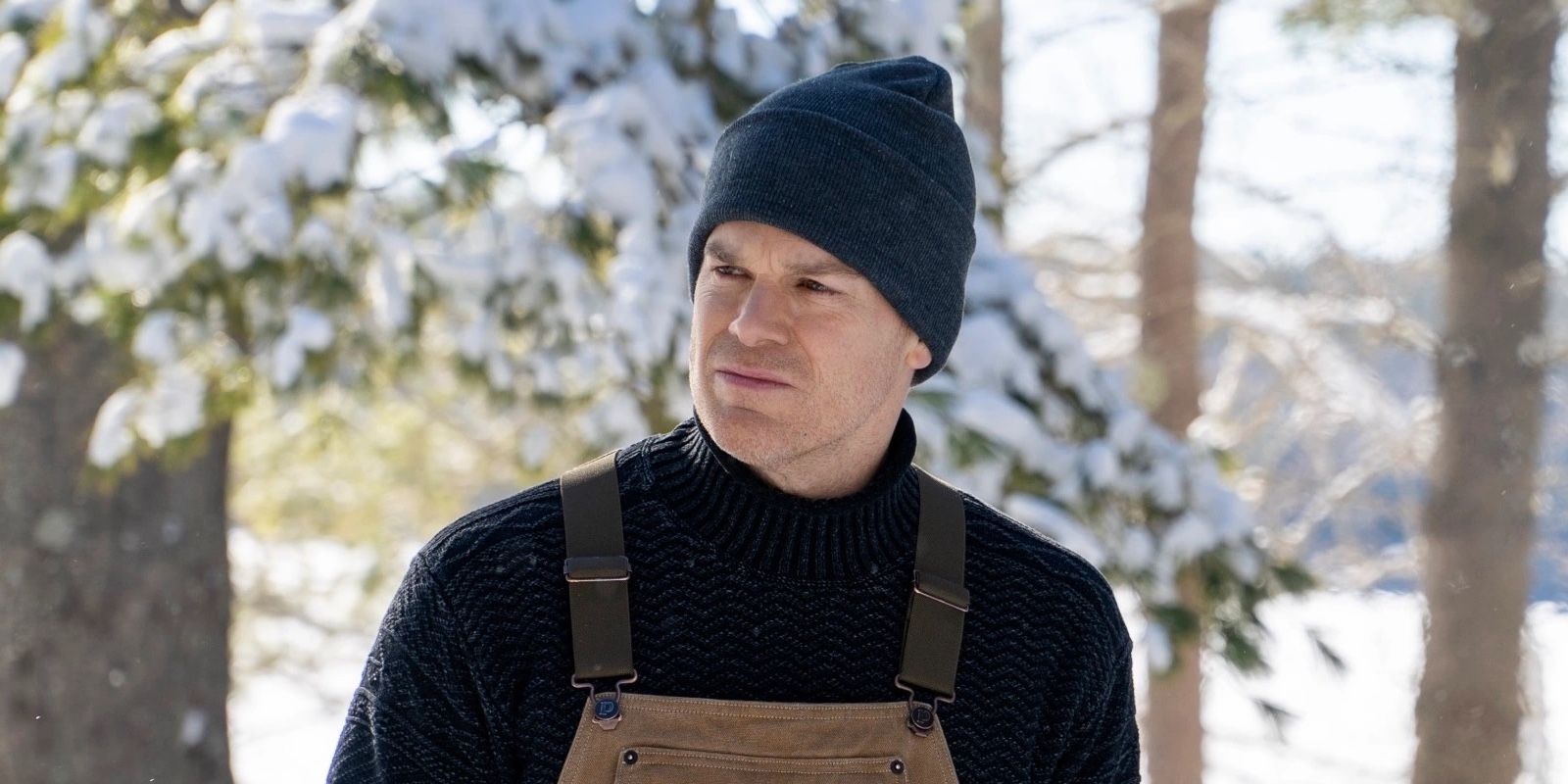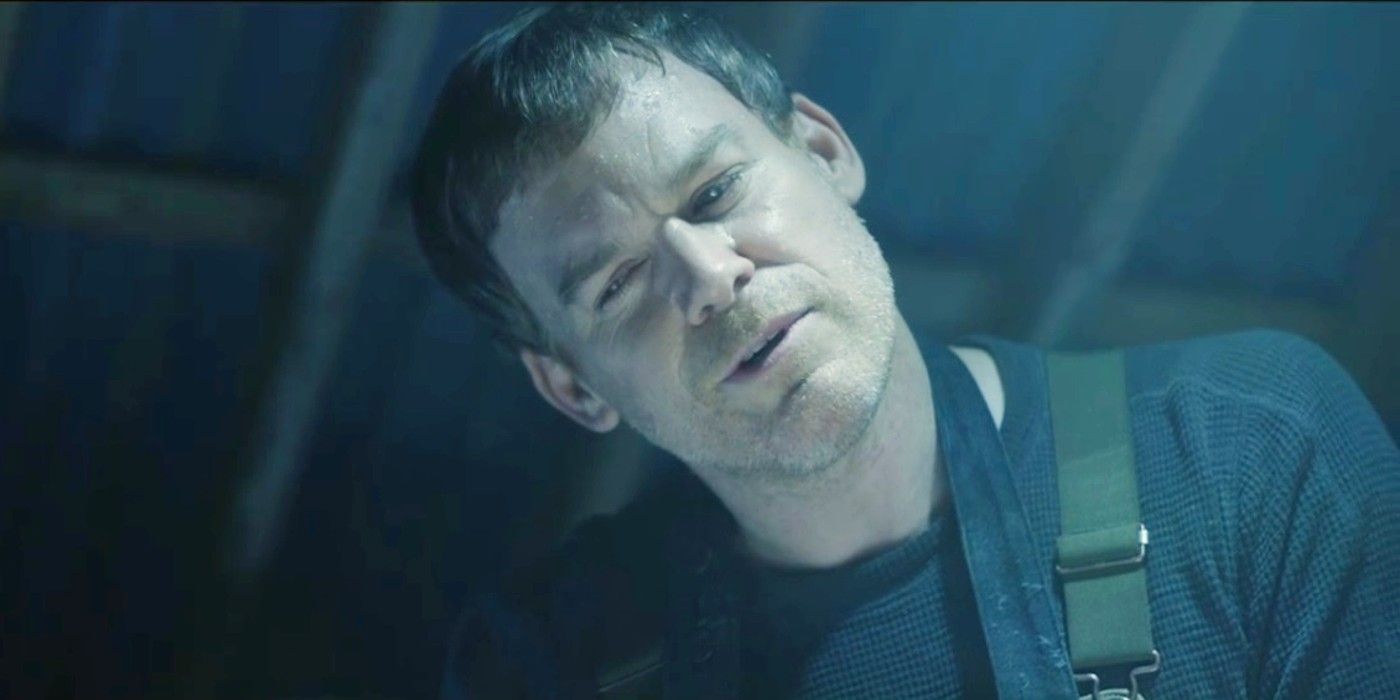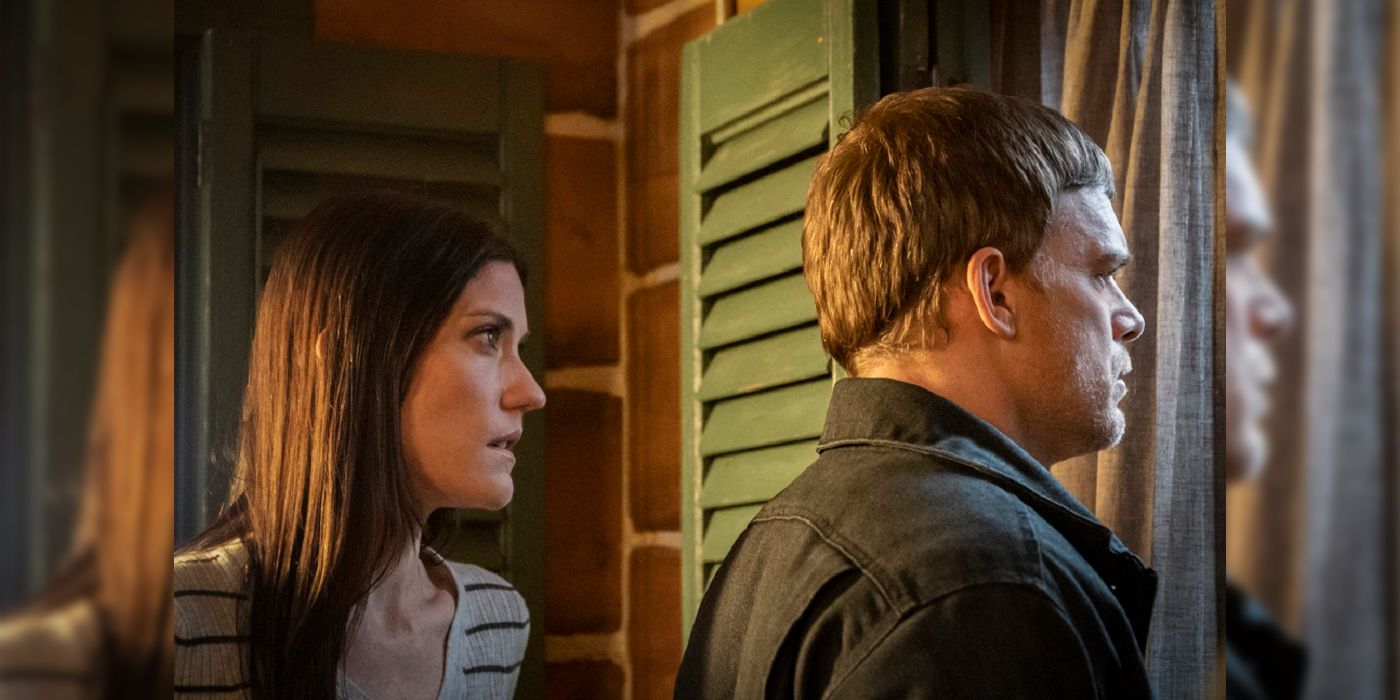Showtime's Dexter is back with the revival series, Dexter: New Blood, picking up 10 years after the original show's series finale. Since going missing in the eye of Hurricane Laura, Dexter Morgan (Michael C. Hall) now finds himself living under an assumed name in Iron Lakes, New York. But unexpected events cause his Dark Passenger to re-appear.
Dexter: New Blood showrunner Clyde Phillips spoke with Screen Rant about the revival series, making up for the controversial series finale, and how it felt reuniting the cast.
Screen Rant: Why do you think the fan response has been so positive and great for this revival?
Clyde Phillips: I think a couple of reasons. This is Showtime's biggest show. Dexter and Weeds established Showtime as a serious player in premium cable and, kind of, took away their subordination to HBO. Showtime has pulled out all the stops in promoting this show.
Michael Hall's coming back. That's huge. The fans love him. And, the show itself was so popular for so long. We can talk about the problems of the last season if you want, but it was so popular for so long, that I still know people even in the interim when I wasn't doing this show, that would see me wearing a Dexter t-shirt or something when I'm jogging and say, "Oh my God, I just got done binging that show for the second time and then had to watch it a third time with my husband" or whatever it was. It's always on television. It's always in the zeitgeist.
And we were lucky to break through with an antihero, just as the antihero world was starting with Tony Soprano and Vince Mackey and Walter White and Don Draper. There's still an anti-hero world out there now, except that the landscape has changed a little bit. Ozark, what Jason Bateman and Laura Linney do is reprehensible, but we love them. Killing Eve - look what Jodie Comer does, but we love her. And look what Dexter does. And we love him. People love Dexter for a couple of reasons. One is, it's Michael Hall. And the other is, I think, the voiceover, which makes Dexter vulnerable, understandable, it's often funny.
When we're editing and I see a piece of a moment where we can add some voiceover that wasn't already written into the scripts, I will take out my iPhone and record it, push send, send it to the editor, the editor will cut it into the picture, send it to Michael and by that evening, we'll have it back in the picture. It's just incredible what we end up doing and we're all in different cities. I'm on Martha's Vineyard, one of the editors is in New York, another one's in St. Louis, another one's in California. So thank God for Zoom and all the other systems that are out there.
How did you feel about the controversial finale of the last season of Dexter?
Clyde Phillips: I feel the same way Michael does and the way most people do. I think it failed to satisfy. It also, I think, broke a certain trust with the audience that we had built up in the early years. And I think it was a little coy and not successful.
Let's just be blunt. If you Google “The Top 10 Worst Series Finales Ever,” Dexter is going to be on every list. People were so disappointed. And so, we have, in a non-religious sense here, a chance for redemption. I think that's one of the reasons, to go back to your original question, why people are so excited about this as well.
What was your idea, when you were on the show, for how the show should end?
Clyde Phillips: Well, my idea was, and it's online so people can look it up - by the way, thank God, we didn't do it because we wouldn't be having this conversation now - is that, whatever the episode is, plays out, and then, suddenly, Dexter goes, "[GASPS!]" and we think, "Oh, s**t, he's waking up from a dream. You're really doing that to us?"
But really, what he's doing, he's waking up on the execution table, and all of his victims in the witness area [are there]. We see [John] Lithgow, Jimmy Smits, and Jamie Murray and all the weekly victims are witnessing his execution. And then, whatever brilliant voiceover that we would write would come up, and then the show would end. And had we done that, we wouldn't be making this fantastic show we're making right now.
We know that Dexter is presumed dead as far as Miami is concerned, and he's in hiding and starting his new life. We're in a different location. But will we find out what became of some of our Miami faves? For example, I really want to know what became of Quinn (Desmond Harrington).
Clyde Phillips: Quinn does not come up this year at all. He doesn't. There are some other - I don't know the difference between an Easter egg and a breadcrumb - but there are some tips of the hat to several of the characters.
And, as it's no secret now, Jennifer Carpenter is coming back as Dexter's conscience. It was interesting, in writing her character in the writing room because she's so powerful and so profane, and so aggressive, and so much fun, we had to keep reminding ourselves that she wasn't real. She can't pass Dexter a cup of tea, or he doesn't have to hold the door open for her, or she can't slap him or anything like that. Jennifer Carpenter herself is such a dynamic presence on the set. First off, she just bought everybody’s spirits up all the time, particularly Michael's.
Even she would do something. We'd say, "Wait, no, no, you can't do that!" She'd go "God, yeah I forgot you, you're right." And all rules are made to be broken. So we broke some rules as we got more used to seeing her on-screen and seeing their relationship. But Michael uses a great descriptor, he said, "Dexter and Deb, even though she's his conscience, should feel like a well-lived-in married couple. They're very comfortable with each other." And as actors and as real people, they are just that, so it was very easy for them to slip into that.
You do something so wonderful in the first episode, where it's so noticeable that you're not getting Dexter's inner monologue. I'm almost through the episode. I'm like, “Oh, this is very weird to not know what Dexter is thinking and feeling the entire time.” And then it turns into this welcome back moment that had me literally pacing in front of the TV. I just loved that so much.
Clyde Phillips: Thank you, that was totally intentional and really difficult because we have this rhythm of writing the show where we can go to voiceover whenever we want, whenever we want it. And the voiceover gives us a couple of things: it makes the character accessible, vulnerable, it's also a great chance for humor. And to not have that as a tool in our toolbox, made it more challenging to write that first episode, but it's so worth the satisfaction of when he finally does talk and when 'tonight's the night' comes back, you know? "Hello, Dexter Morgan" and all of that comes back.
It's interesting when we're editing, which we do all day long because we have deadlines, I'll see a moment where I have an idea for some funny voiceover or some explanatory voiceover, whatever it is. I'll take out my iPhone. I'll record it. I could do his voice, I could do Lithgow's voice. "Now Clyde" [impression]. And I'll record it, send it to the editor. The editor will cut it into the picture, send it to Michael. And if Michael likes it, he'll record it. And that night, we'll have the picture with Michael's voice on it. It's just astonishing what we're able to accomplish.
You mentioned John Lithgow, and it's out there that he's coming back as the Trinity killer. What can you tell us about bringing him back into the series? Because he was the fan-favorite, big bad of the show.
Clyde Phillips: He was. That season, season four. I'm just moving to a new apartment, so I'm unpacking stuff. And I came across this award that said, "Dexter Season Four is one of the top 100 seasons ever in television." But that includes All in the Family and Bochco stuff? I mean it's really intimidating to think about.
John [Lithgow] and I have remained friends through this whole time, our birthdays are a day apart, we talk to each other all the time. And so I called him up. And I said, "Do you want to come back and make an appearance?" And he said, "Yes, can it be in a month because I've got something else I'm committed to." And I said, "We're shooting for six months. So whatever day you want to come back, we'll make it happen."
And what happened was, we tried to keep stuff a secret and hiring John let out two secrets, cause you can't keep a secret these days. So somebody saw John on an airplane and a driver drove him to the stages in Massachusetts and somehow, word got out. So then John gets nominated for an Emmy for Perry Mason. And he's being questioned on a big Zoom publicity thing. And somebody says, "You were spotted in Massachusetts and Dexter shooting in Massachusetts. Did you go back?" And he said, "Well, yes, I did." And they said, "What was it like?" He said, "Oh. Oh my God, it was great to see Michael Hall. It was great to see Clyde Phillips. It was great to see Jennifer Carpenter." So there goes the Jennifer Carpenter secret.
So it was anywhere from "no comment" to "Yes, I'm in it. And so is Jennifer Carpenter."
You talked about Deb being the conscience, Why is she Dexter's conscience? We’ve seen Harry in that role in the past.
Clyde Phillips: Well, Harry wasn't really his conscience. He was his guide. And we've actually brought up in this season, you know, what Harry did, some could consider child abuse; I mean, that he should have been institutionalized at 15. He's a psychopath. This is fiction. This is art with a small a, but this is also about a serial killer. And people shouldn't be serial killers. What Deb does, early on in the first run of the season, Dexter's commenting on Deb in voiceover and saying, "My sister Deb, if I were capable of love, she would be the one I love." And that played out through the years.
When we got her and when she was on the set, everybody was elevated. Michael was happy, the crew was happy. She was out of her mind in the best possible way. She's such a good actress and trying all sorts of different things which would make Michael try different things. They just come up with this wonderful stuff. And she, as you saw in the show, she's really powerful. And really, they have this great comfort level with each other.
Just that first scene when we meet her and she puts her arm down on the table, and Dexter's eating his cereal. And again, that's that monastic life that he has. Here's a guy that was used to eating ham and now he's eating granola. It's all these little subtle things about how much his life has changed or how much he's trying to change his own life since we last saw him.
I want to ask, is the plan just to do one season? Are we going to get a definitive ending at the end of these episodes?
Clyde Phillips: Well, I can't talk about the ending. All I can say is, on this show, we never say never. Had I gotten my wish in season 8, had they ended it the way I wanted to, we wouldn't be talking to each other right now. So, anything's possible. But the ending will be, as I said at Comic-Con, "surprising," "inevitable," and "will blow up the internet."
Dexter: New Blood airs Sundays at 9 PM on Showtime.


